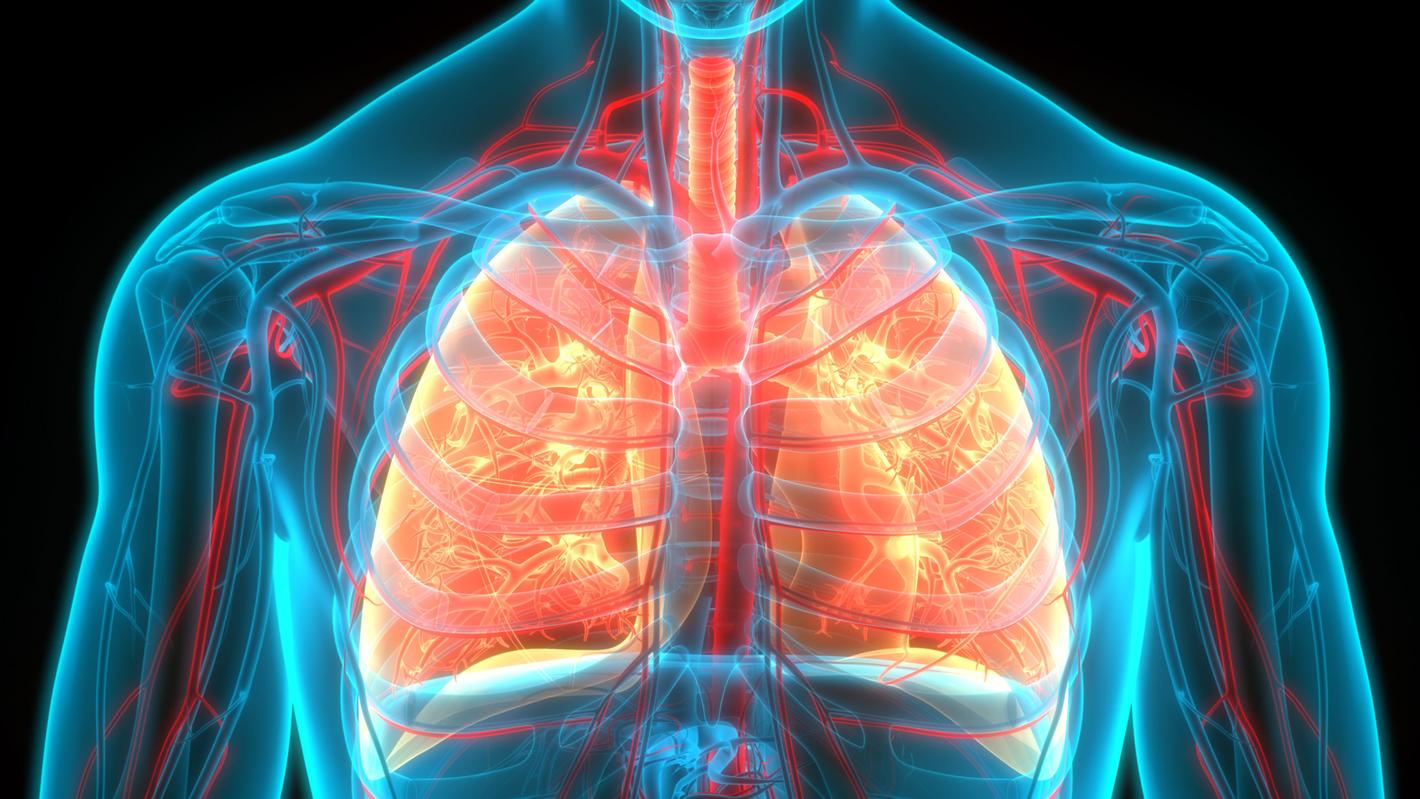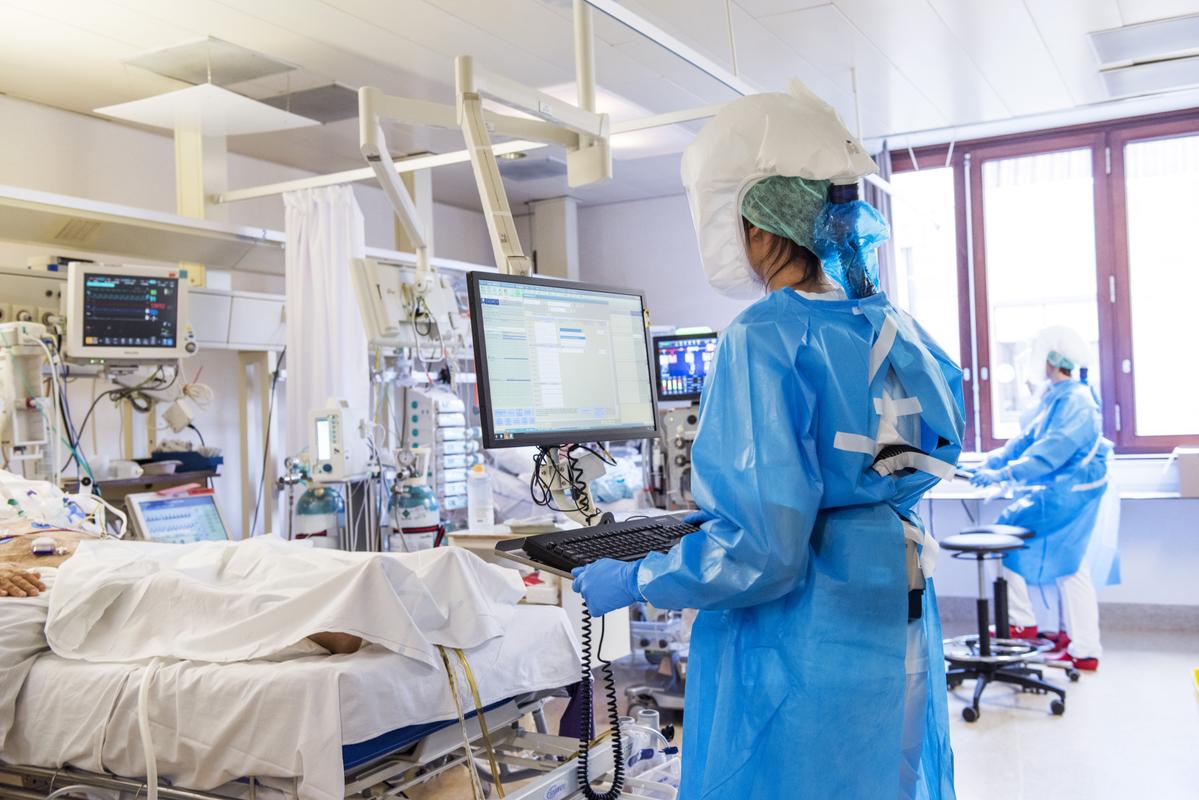Because of the shortage of available lungs and because transplants which are not planned in advance have less favourable end results, UZ Leuven can only very exceptionally perform this type of lung transplant. The team of transplant surgeons, pulmonologists and intensivists worked out a list with criteria: based on these strict criteria lung transplants for intensive care COVID-19 patients will be considered in future. Already during the first corona wave the UZ Leuven transplant physicians were regularly asked to consider a lung transplant for a COVID-19 patient in intensive care. It usually concerned patients in a coma that continued to be in a life-threatening condition after several weeks on intensive care and for whom recovery seemed impossible.
Valuable donor lungs
There are many objections against such transplants in acute situations. A transplant centre normally only accepts patients that have been carefully screened in advance to qualify for a transplant. Giving a patients new lungs without being involved in a screening programme, is less likely to succeed than a transplant that can be planned in advance. Ethically speaking it is also a difficult choice to give valuable donor lungs to critically ill patients for whom it is unclear how long they will still live while at the same time there are other patients in a screening programme that have already been waiting for months or even years.

Strict selection criteria
In the meantime, scientific results of successful lung transplants in critically ill patients on intensive care have been published worldwide. As a result the UZ Leuven team of pulmonologists, intensivists and transplant surgeons looked into a number of criteria that need to be met for allowing a COVID-19 patient in intensive care to undergo an urgent lung transplant.
Prof. dr. Geert Verleden, pulmonologist at UZ Leuven: “This type of lung transplants will remain exceptional. In any case, it is only for critically ill patients that have been on a respirator in intensive care for at least four weeks. In addition, there is an age criterium: the younger the patient, the higher the chance of getting new lungs. More importantly the person had to be in a good medical condition before contracting COVID-19, and preferably be a non-smoker with no overweight. Another requirement is that the patient has to test negative for COVID-19 and is, therefore, no longer contagious, so that our doctors can safely perform the transplant. And of course, the patient needs to meet the requirements of the international partnership with Eurotransplant, which also has specific criteria for urgent lung transplants. Whoever ends up in a coma on an intensive care ward as a result of COVID-19, will have to rehabilitate for months. Which explains why the neurological examination of the comatose patient is important to qualify for a transplant.”
This type of lung transplants will remain exceptional prof. dr. Geert Verleden
prof. dr. Geert Verleden
Patients in critical condition
On 1 January 2021 a patient who met the strict criteria underwent a lung transplant at UZ Leuven. His family had to consent to the transplant, as the patient himself was in a coma. The transplant went well and the patient, who has since left the hospital, is doing well. A week later a second patient on a intensive care COVID-19 ward was also given new lungs.
Prof. dr. Dirk Van Raemdonck, thoracic and lung transplant surgeon at UZ Leuven: “Most people on an intensive care COVID-19 ward will unfortunately not qualify for a lung transplant. Our patients on the regular waiting list for lung transplants will almost always be given priority. As a result of the coronavirus pandemic there is not only a shortage of donor lungs but of intensive care beds as well. However, we are still happy we can offer a lifeline for some critically ill persons in these dark times. These two first lung transplants in our transplant centre prove that it is technically possible, and with good results. Worldwide, there are more and more scientific reviews that show that such transplants can be meaningful and successful, on the condition that patients are selected strictly. It is however still an exceptional situation for transplant surgeons to transplant patients that are that unwell.”
It is expected that urgent lung transplants in COVID-19 patients will account for less than 5% of the total number of lung transplants. The chance for 1-year survival after lung transplant is normally 90%, for the urgent lung transplants in intensive care COVID-19 patients this could drop to 50%. The UZ Leuven transplant team performs, on average, 70 lung transplants a year. The coming months and years, the transplant doctors expect an increase in the demand for lung transplants in patients who went through a serious COVID-19 infection. These patients will be included in the normal lung transplant programmes.
These first lung transplants prove that it is technically possible, and with good results. prof. dr. Dirk Van Raemdonck
prof. dr. Dirk Van Raemdonck
More information
At UZ Leuven, lung transplantst are performed by a multidisciplinary team of lung transplant surgeons, pulmonologists, intensivists, anaesthesiologists, transplant coordinators, perfusionists and nurses. Read more about lung transplants (in Dutch) at UZ Leuven.
